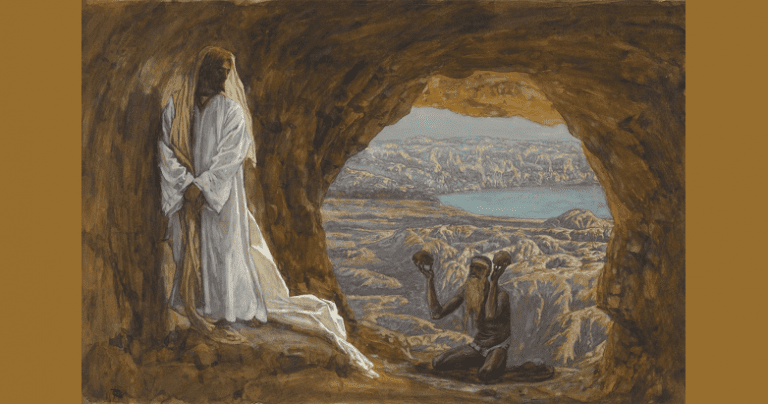 |
| "Jesus Sits by the Seashore and Preaches," by J. Tissot. Brooklyn Museum / Public Domain. |
At Mass on Saturday of the Fourth Week in Ordinary Time
Year II of the Weekday Lectionary: 1 Kings 3:4-13 and Mark 6:30-34
In today’s two readings we meet two shepherds.
The first was King Solomon, shepherd of God’s people.
God told him: Ask something of me and I will give it to you.
Solomon did not ask for riches, long life or the death of his enemies.
He asked for wisdom to serve rightly as the shepherd of God’s people.
In asking for this, Solomon was the opposite of greedy, the opposite of self-centered.
He was poor in spirit.
Rather than enrich himself, he sought to give God’s people the wise shepherd they needed.
In today’s Gospel, we see that God in Christ knew his people needed a shepherd again.
We see Christ in today’s Gospel shepherding first of all his Apostles: Come away by yourselves ... and rest a while.
Then, a vast crowd rushed out from all the towns to meet Christ.
They were eager for what Christ could do for them.
The Gospel says when he saw them: his heart was moved with pity for them, for they were like sheep without a shepherd.
The tame sheep that humans have bred for thousands of years cannot survive without a shepherd.
They do not have the speed or cunning to avoid predators.
They do not distinguish between plants safe to eat and poisonous plants.
Tame sheep need a shepherd.
That is how Christ saw the vast crowd that had rushed out from all the towns to meet him: his heart was moved with pity for them, for they were like sheep without a shepherd.
So he himself began to shepherd them— as today’s Gospel says: he began to teach them many things.
Teach— he gave them wisdom, even as God had given wisdom to Solomon.
In the end, Christ would even give himself as real food to feed these and many more hungry people.
Together with his Apostles and the vast crowd in today’s Gospel, you and I are his sheep.
We are members of the vast crowd that is the one, holy, catholic and apostolic Church coming out from all the towns of the world to seek out and follow Christ.
His heart is moved with pity for us.
Through his Gospel, his life and deeds, his suffering, death, resurrection and ascension, through his real presence and the Holy Spirit that he breathes upon us: he teaches us many things.
Here in his Eucharistic Body and Blood, our Shepherd hands over his life for us.
Here in his Eucharistic Body and Blood, God in Christ is poor in spirit, seeking not to enrich his own self, but to be given up and poured out for us and for many.
At the same time, he is also the Risen One, who is forever alive for his sheep.
Without him, we are sheep without a shepherd.
Like the vast crowd in the Gospel today, each of us would do well always to hasten to find Christ.
When we are eager to find Christ, his heart is moved to be a teacher of many things.
We listen, we learn, and we are alive through prayer, where, like the Apostles in today’s Gospel we go to be alone with Christ who said: Come away by yourselves to a deserted place and rest awhile.
Yet we must also be alive like Christ in having a heart moved with pity for the vast crowd of the world; and with Christ we must teach them many things.
But we must first teach the world with the honest example of our own Solomonic wisdom in truly seeking and following Christ before and above all else.






